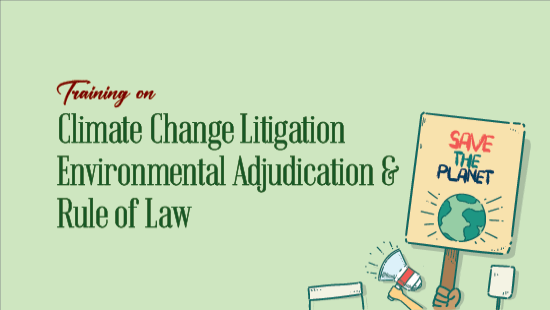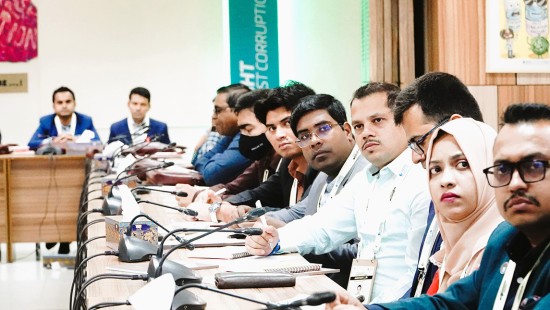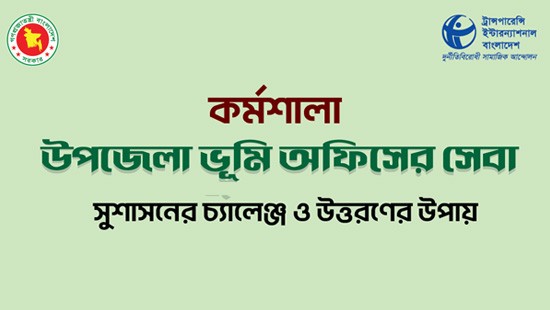Published: 02 May 2024
In a collaborative event, Transparency International Bangladesh (TIB), right-based organisation Article-19, and UNESCO Dhaka Office gathered to celebrate the World Press Freedom Day 2024. The event covered a range of topics, fostering open discussions among experts from diverse sectors on pressing environmental and rights-related concerns.
Under the theme "A Press for the Planet: Journalism in the Face of the Environmental Crisis," panelists explored different challenges faced by the media and civil society. The dialogue's encompassed not only environmental issues but also fundamental rights, underscoring the intertwined nature of them.
The inaugural panel discussion, "A Press for the Planet: Free Press and Freedom of Expression in the Context of Current Global Environmental Crisis”, was moderated by Sheikh Manjur-E-Alam, Regional Director (Bangladesh and South Asia) of Article-19. The session featured insightful presentations by Shamsuddin Illius of The Business Standard and Usraat Fahmidah, a freelance journalist. Illius highlighted the crucial role of media in environmental reporting and advocacy, emphasising the grassroots challenges faced by journalists. Fahmidah passionately advocated for solution-oriented reporting, urging the media to shape narratives that offer hope amid crippling climate anxiety in young people.

Rejoan Haq, Editor-in-Chief of Maasranga Television, spotlighted the hurdles journalists and electronic media personnel face, particularly in reporting environmental issues. He called on the government to establish laws and commissions to help journalists mitigate problems, and ensure their safety while reporting on everything, including environmental issues.
Speaking as a panelist, Dr. Iftekharuzzaman, Executive Director of Transparency International Bangladesh (TIB), highlighted the shrinking spaces for media and civil society engagement in environmental issues due to political agendas. He cited alarming statistics: in 2022-2023, approximately 23 media attacks and around 43 tortured journalists, and 12 deaths among environmental activists from 2016-2021. He also criticized the collusion of environmental protectors with perpetrators and the normalization of harassment of activists and journalists through repressive acts like the Digital Security Act. He urged the government to ensure that journalists and activists are not subjected to persecution in order to protect press freedom.

The discussions went beyond the confines of the conference room, echoing sentiments of urgency and solidarity. Susan Vize, UNESCO Representative to Bangladesh, underscored the media's pivotal role in catalysing behavioural change regarding climate issues. Alexandra Berg von Linde, Sweden Embassy Ambassador to Bangladesh, reaffirmed the intrinsic link between media freedom and democracy, emphasising the public's right to credible information.
Mohammad Ali Arafat, State Minister of Information and Broadcasting Ministry, addressed concerns about the misuse of media freedom and journalist safety. While advocating for media accountability, he pledged to safeguard journalists reporting on environmental crises based on truth and scientific evidence as it goes with the government’s core agenda of protecting the environment. However, he emphasised that there should be mechanisms in place to tackle misinformation and agenda-based reporting without facts.
A commitment to safeguarding environmental challenges, preserving press freedom, and defending fundamental rights were the focus of the event. TIB and its partners believe that World Press Freedom Day 2024 provided an essential forum for meaningful conversations, and emphasised on the call to action for uniting for a more sustainable and safe world.






